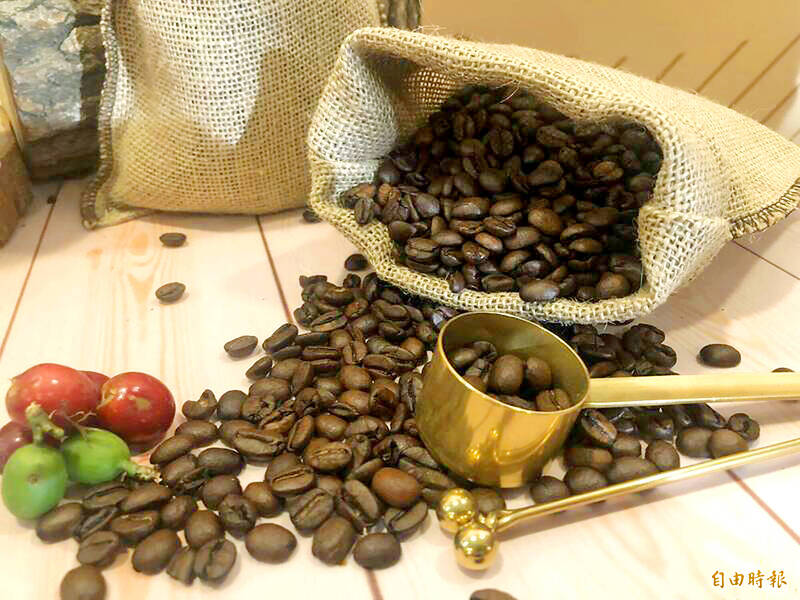《TAIPEI TIMES》 New AI coffee bean sorter doubles processing rates
PRECISE SORTING: Integrated with image recognition technology, the coffee bean separator examines each bean and is able to classify defects into different levels
By Yang Yuan-ting and Esme Yeh / Staff reporter, with staff writer
An artificial intelligence (AI) coffee bean sorter, jointly developed by the Ministry of Agriculture’s Tea Research and Extension Station (TRES) and local coffee operators, has doubled the processing rate of coffee beans with a success rate of as much as 95 percent, the TRES said, touting it as an example of Taiwan being an “AI island.”
The decortication and screening of coffee beans is highly contingent on when a customer places an order, TRES director Su Tsung-chen (蘇宗振) said on Friday.
The process of picking out defective beans by hand is highly labor-intensive, especially because raw beans are tiny and the workers must be trained to identify defects, he added.
The sorting rate of non-defective coffee beans had been increased from two to three kilograms per hour with the hand-picking process, to five to six kilograms per hour using the AI coffee bean sorter, he said.
That is a twofold increase, with a success rate of as high as 95 percent, Su added.
TRES spent three years improving the automated coffee bean separator to increase the efficiency of the screening.
The automated coffee bean separator has obtained a utility model patent in Taiwan, and its technology has been transferred to private manufacturers, TRES said.
TRES said it also integrated image recognition technology with a utility model patent for an automated coffee bean separator to develop the AI coffee bean sorter, which allows it to examine each bean with a 360-degree view before classifying the defects into different levels.
Defective coffee beans with insect bites can be screened out, effectively reducing labor costs, TRES said.
With increasing labor costs, there is potential for the AI coffee bean sorter to be widely adopted, TRES associate research fellow Liu Chien-ju (劉千如) said.
Foreign machines can process dozens of kilograms of coffee beans per hour, which is much more than the machine made in Taiwan, but without the technique to achieve precise sorting and grading, their applications are limited to regular commercial coffee beans, Liu said.
In contrast, the machine and system made in Taiwan can accurately scan the appearance of each coffee bean and classify them, making it a better choice for specialty coffee, she added.
Taiwan has 1180 hectares of coffee trees planted, with an annual output of 980 tonnes, 2022 agriculture statistics showed.
Separately, TRES also touted the Taiwan tea Assortment and Grading system (TAGs) it introduced five years ago, which it said has helped consumers decide the tea quality and flavors they want without having to taste the tea themselves.
TAGs was developed by TRES based on the Taiwan Special Tea Flavor Wheel, allowing the jury to grade a tea by its appearance, color, fragrance, taste and texture, which would then be compiled into a report for consumers.
While red wine and coffee have flavor wheels in Western nations, Taiwan was the first in the world to analyze and develop a flavor wheel for oriental tea, even before China, Su said.
Combined with the flavor wheel, TAGs was created with the aim of helping Taiwanese tea gain a foothold in the international market for specialty tea, he added.
新聞來源:TAIPEI TIMES

















